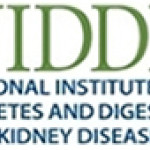- Industrie: Government; Health care
- Number of terms: 17329
- Number of blossaries: 0
- Company Profile:
The National Institute of Diabetes and Digestive and Kidney Diseases (NIDDK) conducts and supports research on many of the most serious diseases affecting public health. The Institute supports much of the clinical research on the diseases of internal medicine and related subspecialty fields, as ...
Also called low blood glucose, a condition that occurs when one’s blood glucose is lower than normal, usually below 70 mg/dl. Signs include hunger, nervousness, shakiness, perspiration, dizziness or light-headedness, sleepiness, and confusion. If left untreated, hypoglycemia may lead to unconsciousness. Hypoglycemia is treated by consuming a carbohydrate-rich food such as glucose tablets or juice. Hypoglycemia may also be treated with an injection of glucagon if the person is unconscious or unable to swallow. Also called an insulin reaction.
Industry:Health care
When the level of glucose in the blood is too low (below 70 mg/dl).
Industry:Health care
When the blood glucose level swings high following low blood glucose, or hypoglycemia. The somogyi effect may follow an untreated hypoglycemic episode during the night and is caused by the release of stress hormones. Also called rebound hyperglycemia.
Industry:Health care
When the blood glucose level swings high following low blood glucose, or hypoglycemia. The somogyi effect may follow an untreated hypoglycemic episode during the night and is caused by the release of stress hormones. Also called rebound hyperglycemia.
Industry:Health care
The use of a machine to clean wastes from the blood after the kidneys have failed. The blood travels through tubes to a dialyzer, a machine that removes wastes and extra fluid. The cleaned blood then flows through another set of tubes back into the body.
Industry:Health care
Using areas of the body other than the fingertips for blood glucose monitoring.
Industry:Health care
Tubes that carry blood to and from all parts of the body. The three main types of blood vessels are arteries, capillaries, and veins.
Industry:Health care
Total and permanent kidney failure. When the kidneys fail, the body retains fluid. Harmful wastes build up. A person with esrd needs treatment to replace the work of the failed kidneys.
Industry:Health care
